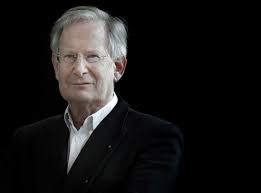Barbican Hall, Saturday 26 March 2016
Sir John Eliot Gardiner asks a lot of his musicians – and equally so of his audience. The singers perform without scores and the many solo instrumentalists perform from memory. The effect is one of immediacy and intense dramatic impact. When this is united with the immaculate beauty of line, the intimacy of so many of the solo arias, and the rapport of all concerned, the impact is frequently overwhelming. I can’t recall a St Matthew Passion where the words have seemed quite so important, driving the text and insisting we follow the narrative. There was never a moment when we simply relaxed into beautiful singing, though that itself was never in doubt.
In the programme note John Eliot Gardiner makes a strong case for his approach, which avoids the pitfalls of a ‘staged’ event and the often sterile impact of a concert. Instead we have soloists who move easily about the stage to find their place to address us directly. They make eye contact with the instrumentalists and with the audience. In the final choruses, both Evangelist and Christus join the chorus, and throughout, the solo voices have come out of the chorus and returned to it.
There is a sense that the music really is more important than those who are performing it, though I doubt we could find a finer performance anywhere today.
Mark Padmore brings an urgency to the Evangelist which involves us throughout and is finely contrasted to Stephan Loges humane Christus. Trinity Boys Choirs may not have a lot to do – they rightly left the stage for much of the time – but their surprisingly continental sound brings unexpected authority to their choruses. The sudden changes in dynamic make for a thrilling choral sound from the Monteverdi Choir, and the English Baroque Soloists are just that – a collection of expert individual players who come together to be more than the sum of their parts.
There was a standing ovation at the end. I’m not normally keen on this type of emotional outburst but on this occasion it was certainly justified.

